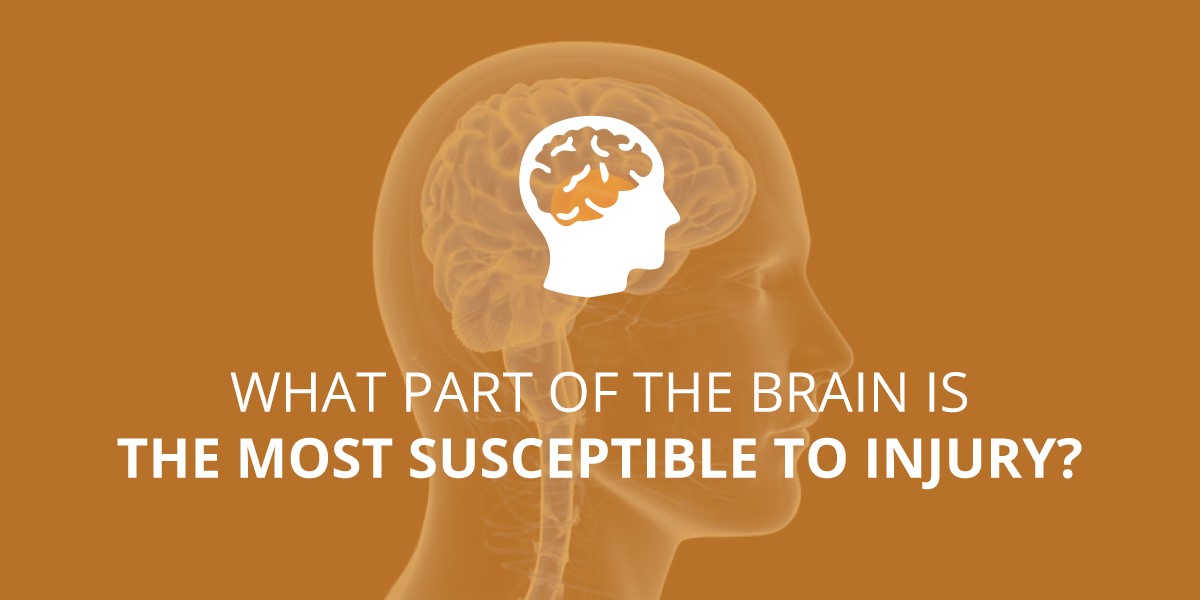Your brain is a significant part of everything you do, from conscious thought to involuntary actions like breathing. It is covered by three layers of membranes known as the meninges and is cushioned within the skull by cerebrospinal fluid. All of these protections keep your brain safe on a daily basis, but they are no match for an extreme force.
If you slip and hit your head, are involved in a car crash, or are physically assaulted, you may suffer a blow to the head that causes a mild, moderate, or severe traumatic brain injury (“TBI”) or another head injury. While any part of your brain could be hurt, the frontal lobe is one of the most commonly injured areas of the brain.
The Frontal Lobe
The brain has three major parts: the cerebrum, cerebellum, and brain stem. The cerebrum controls your higher-functioning and has four sections: frontal lobe, parietal lobe, occipital lobe, and temporal lobe. The cerebellum controls your physical coordination, balance, and muscle control and is located below the cerebrum. The brain stem controls involuntary functions like your heartbeat and breath.
Your frontal lobe is integral to who you are as a person. It is the largest lobe in the brain and extends from behind your eyes and sinuses to behind your ears. It is responsible for your personality, language, decisions, planning, executive function, and movement—though this is a simplified explanation.
Due to the importance of your frontal lobe, injury to this area of your brain can have wide-ranging consequences. Depending on the type and extent of the injury, you can suffer long-term or permanent physical, cognitive, and emotional effects.
How Your Frontal Lobe May Be Injured
One of the most common ways the brain, and specifically, the frontal lobe, is injured is in an accident that exerts a considerable force on the skull. The brain is protected from minor impacts, but a significant blow will cause the brain to move and collide with the skull. When the brain hits the inside of your skull, it can be bruised, swell, and suffer bleeding and other damage.
According to James Kelly, MA, MD, FAAN, a neurologist and expert on treating concussions, the frontal lobe is most commonly injured because it is near rigid and rough bone. Other areas of the brain that are not as close to the skull are less susceptible to injury.
A sudden and damaging blow to the head is known as a traumatic brain injury. A mild TBI is commonly called a concussion. However, the injury may be more significant and lead to a moderate or severe TBI, both of which are more likely to have permanent side effects. A severe TBI can be associated with coma, vegetative state, and death.
In some incidents, the brain only collides with one side of the skull. A coup injury is one that occurs on the impact side of the brain, and a contrecoup injury occurs on the opposite side of the brain from the impact. For example, a common contrecoup injury to the brain occurs when you fall and hit your head on the ground. You will likely suffer a contrecoup injury to the frontal lobe due to sudden movement of the brain and pressure within the skull, according to Dr. Kelly.
A force may be so extreme as to cause the brain harm on the side of the impact and on the opposite side of the brain and skull. This is known as a coup-contrecoup injury.
Another reason the frontal lobe is often injured is due to the position of the neck, according to Dr. Kelly. When the head rotates, the front of the head—and therefore the frontal lobe—moves greater distances than the rest of the head.
A serious accident that causes a strong rotation of the head can lead to a diffuse axonal injury. In this situation, a part of the brain moves slower than another. This lag causes tissue in the brain to tear. A diffuse injury means the harm is spread across a wide area of the brain. The frontal lobe may not be the only area affected.
Another way in which your frontal lobe can be injured in an accident is by a penetrating blow to the skull. Your frontal lobe may be pierced by a piece of your skull or another object.
Possible Effects of a Frontal Lobe Injury
If your frontal lobe is injured in an accident, you can suffer a wide range of symptoms, including:
- Sudden changes in your behavior, such as sudden aggressive behavior
- Impaired judgment
- Memory loss or difficulties
- Impaired spatial reasoning and motor skills
- Reduced intelligence
- Inability to gauge social cues
- Impaired language skills
- Lack of empathy
Because your frontal lobe is responsible for so much, an injury to that area of your brain can impact your memory, cognitive function, executive reasoning skills, language, personality, and physical capabilities.
Did You Suffer a Brain Injury in an Accident?
If you suffered an injury to your frontal lobe or another area of the brain in an accident caused by someone else, contact a Dallas serious personal injury lawyer at Brooker Law, PLLC today. You can contact us at (214) 217-0277 to schedule a free consultation.
